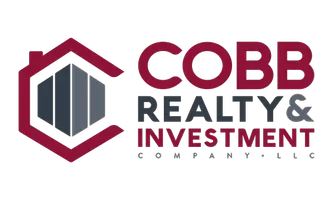HOW MUCH CAN YOU AFFORD?
Understanding how much you can afford is one of the most important rules of home buying. Depending on your individual situation, your budget can affect everything from the neighborhoods where you look, to the size of the house, and even what type of financing you choose.
Bear in mind, however, that lenders will look at more than just your income to determine the size of the loan. Likewise, you may find that there are some creative financing options that can help boost your purchasing power.
Loan prequalification vs. preapproval
One of the best ways to determine your budget is to have your real estate agent or lender prequalify you for a loan. Prequalification is different from preapproval, because it is only an estimate of what you’ll be able to afford. On the other hand, preapproval is a more formal process where a lender examines your finances and agrees in advance to loan you money up to a specified amount.
What factors are important to lenders?
Banks and lending institutions will use several criteria to determine how much money they’ll agree to lend. These include:
* Your gross monthly income
* Your credit history
* The amount of your outstanding debts
* Your savings–or the amount of money you have available for a down payment and closing costs
* Your choice of mortgage (i.e. 30-year, FHA, etc.)
* Current interest rates
Two important ratios
Lenders also use your financial information to figure out two, very important ratios: the debt-to-income ratio and the housing expense ratio.
* Debt-to-income ratio
Many lenders use a rule of thumb that the amount of debt you are paying on each month (car payment, student loan, credit card, etc,) shouldn’t exceed more than 36 percent of your gross monthly income. FHA loans are slightly more lenient.
* Housing expense ratio
It is generally difficult to obtain a loan if the mortgage payment will be more than 28 to 33 percent of your gross monthly income.
Down payments make a difference
If you can make a large down payment, lenders may be more lenient with their qualifying ratios. For example, a person with a 20 percent down payment may be qualified with the 33 percent housing expense ratio, while someone with a 5 percent down payment is held to the stricter 28 percent ratio.
Other ways to improve your purchasing power
* Gifts
If you’re having trouble saving money, many lenders will allow you to use gift funds for the down payment and closing costs. However, most lenders require a “gift letter” stating the gift doesn’t have to be repaid, and will also require you to pay at least a portion of the down payment with your own cash.
* Negotiating Closing Costs
Through negotiation, some sellers may agree to pay all or most of your closing costs (for example, if you agree to meet their full asking price). If you choose to try this, make sure to ask your real estate agent for advice.
* Loan Programs
Many local governments have special loan programs designed to help first-time homebuyers. Loans may be available at reduced interest rates, or with little or no down payments. Check with your local housing authority for more information.
* Loan Types
Some homebuyers choose Adjustable Rate Mortgages (ARMs) because of low initial interest rates. Others opt for 30-year loans because they have lower monthly payments than 15-year loans. There are significant differences between different loans, so make sure to discuss the pros and cons of different loans with your agent or lender before making a decision.
GET MORE INFORMATION

Broker | License ID: BK3130847
2901 E Park Avenue, Unit 2700, Tallahassee, Florida, 32301, United States
